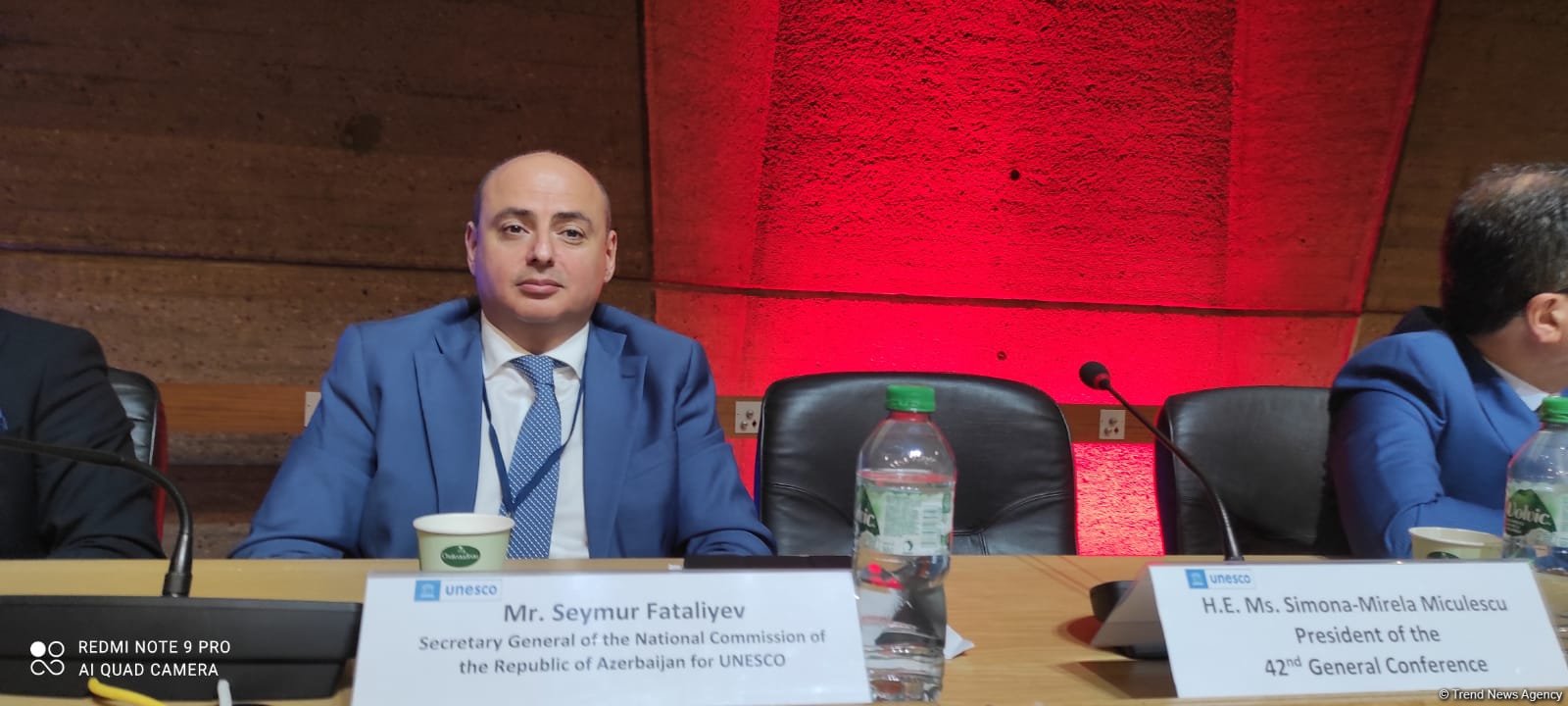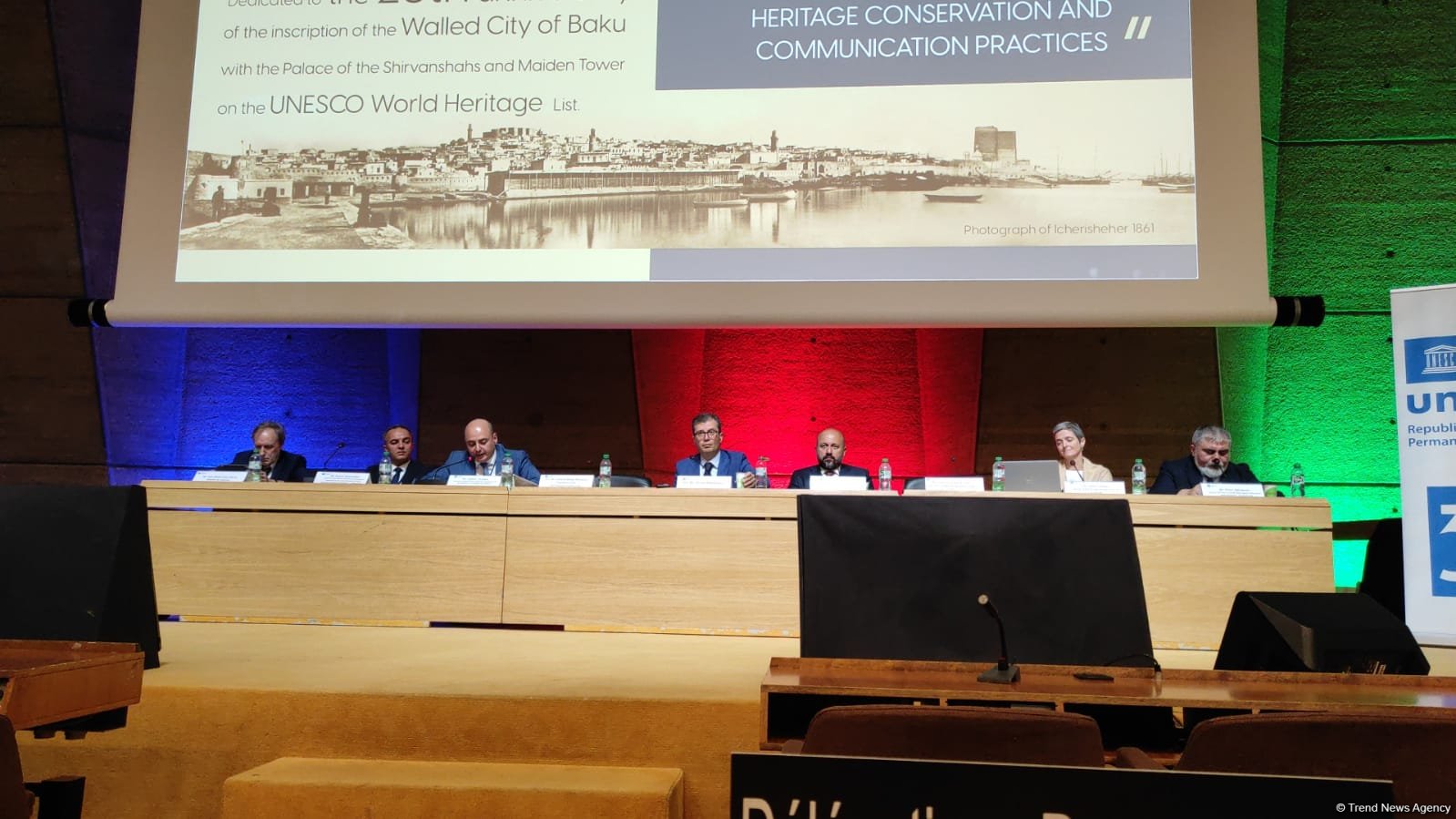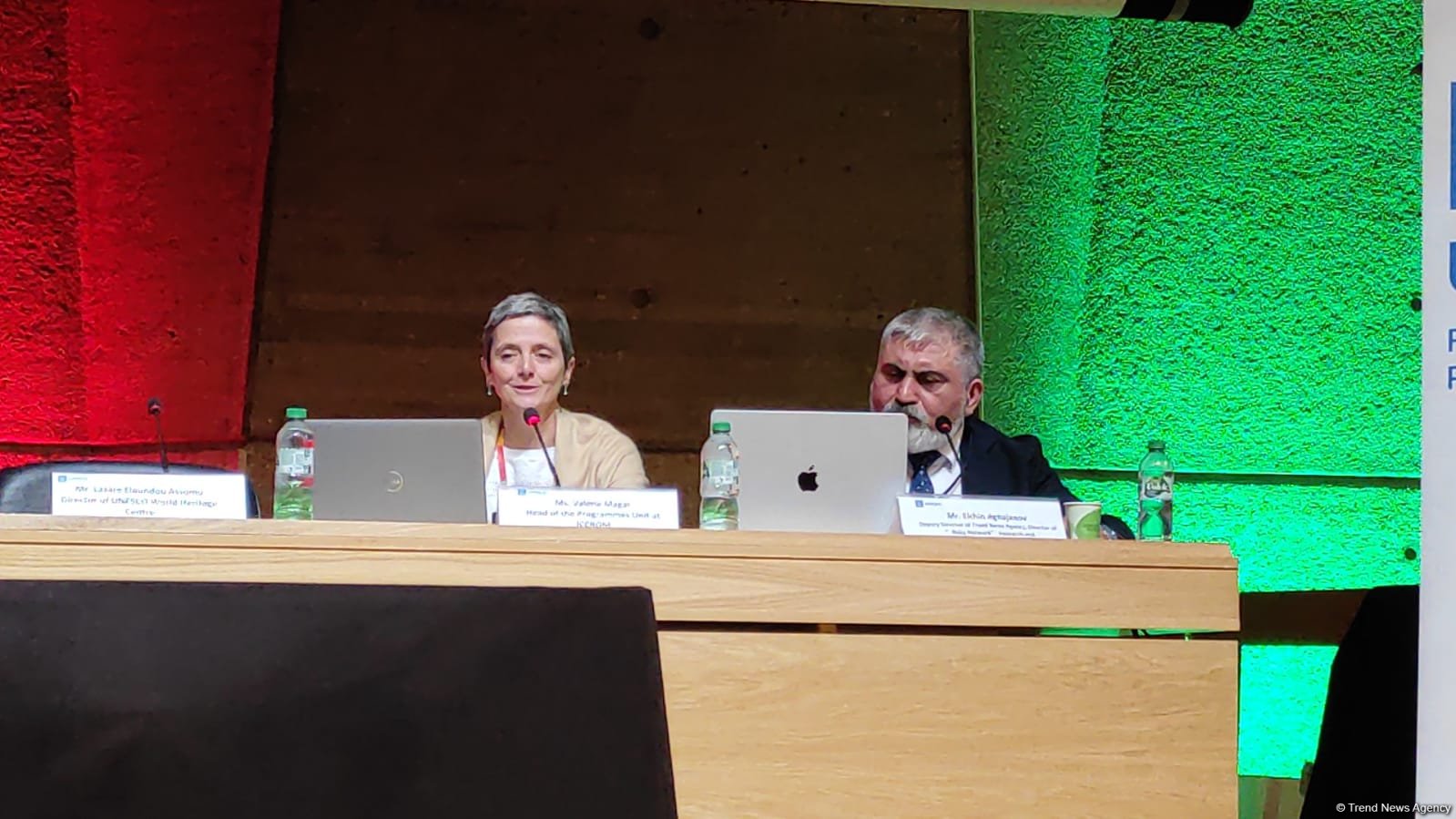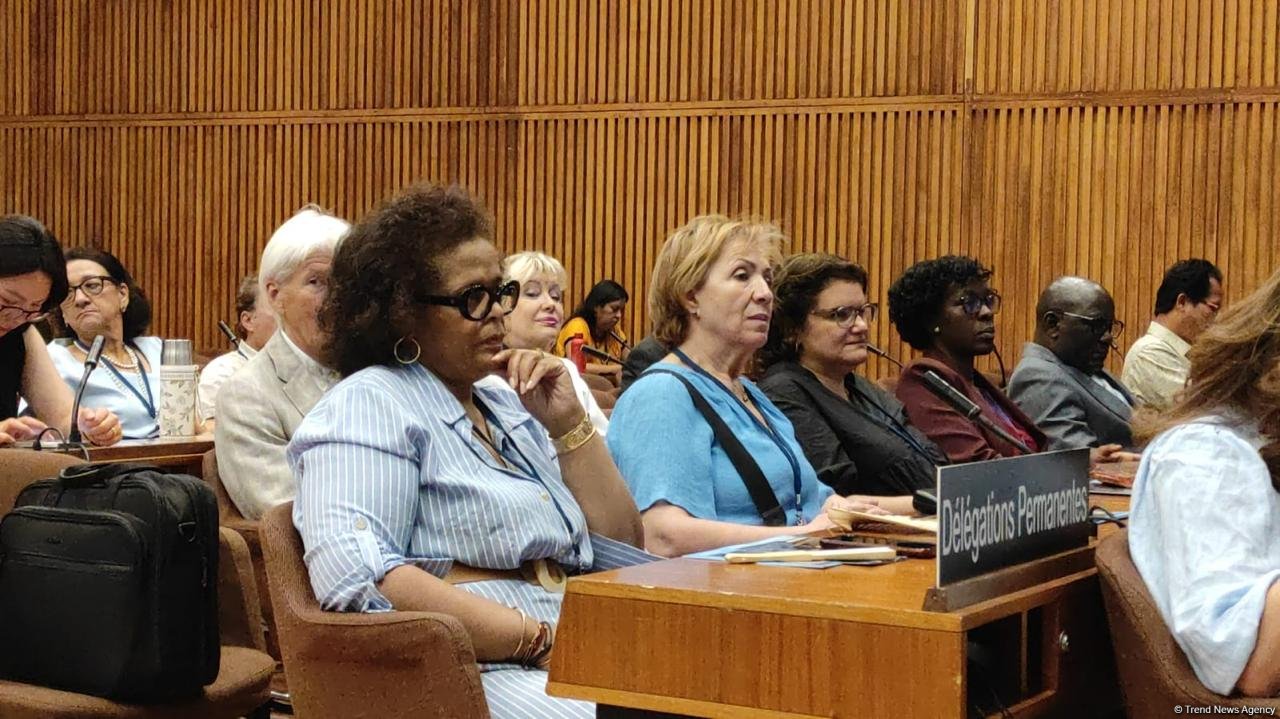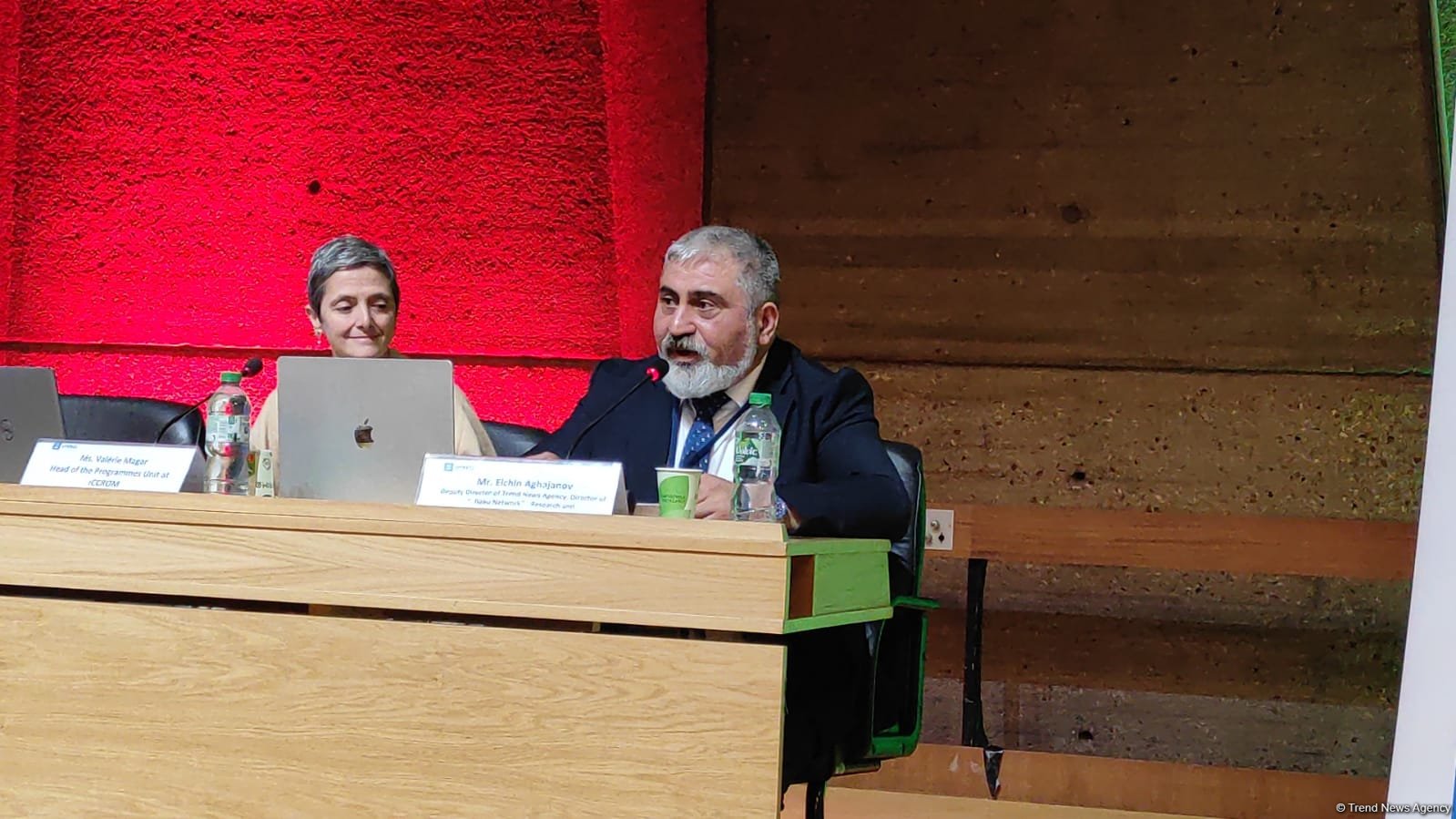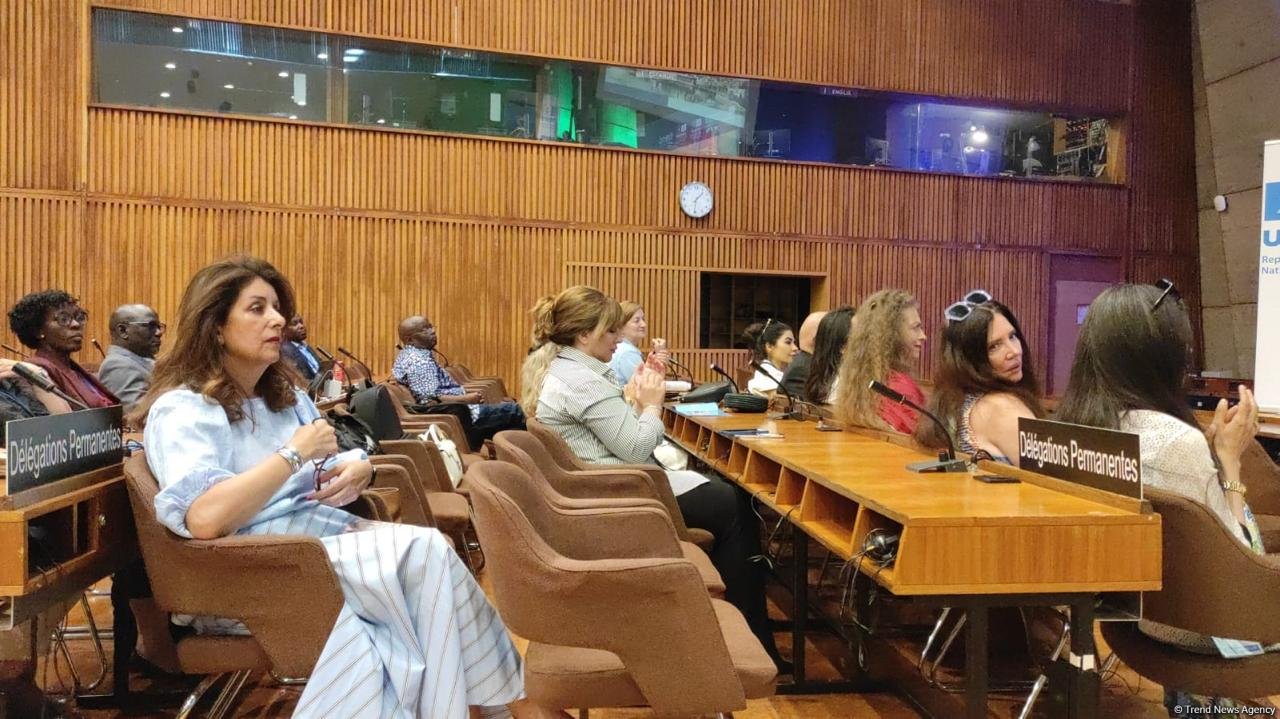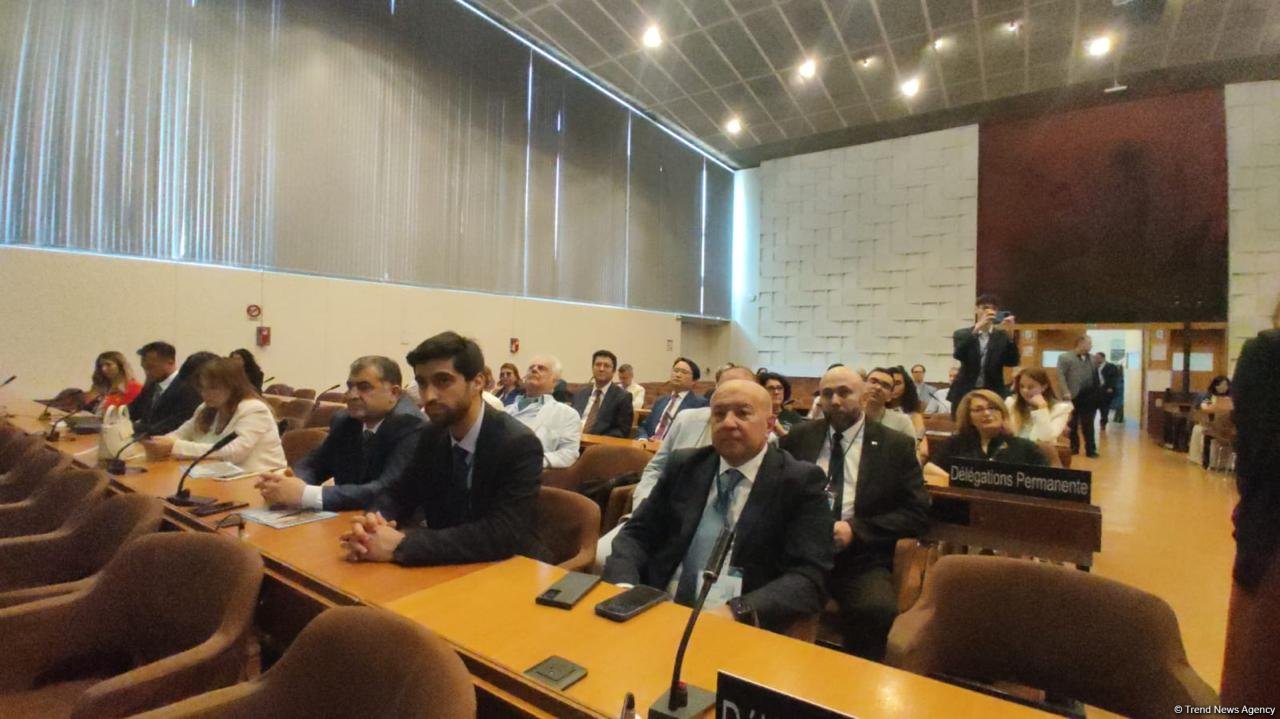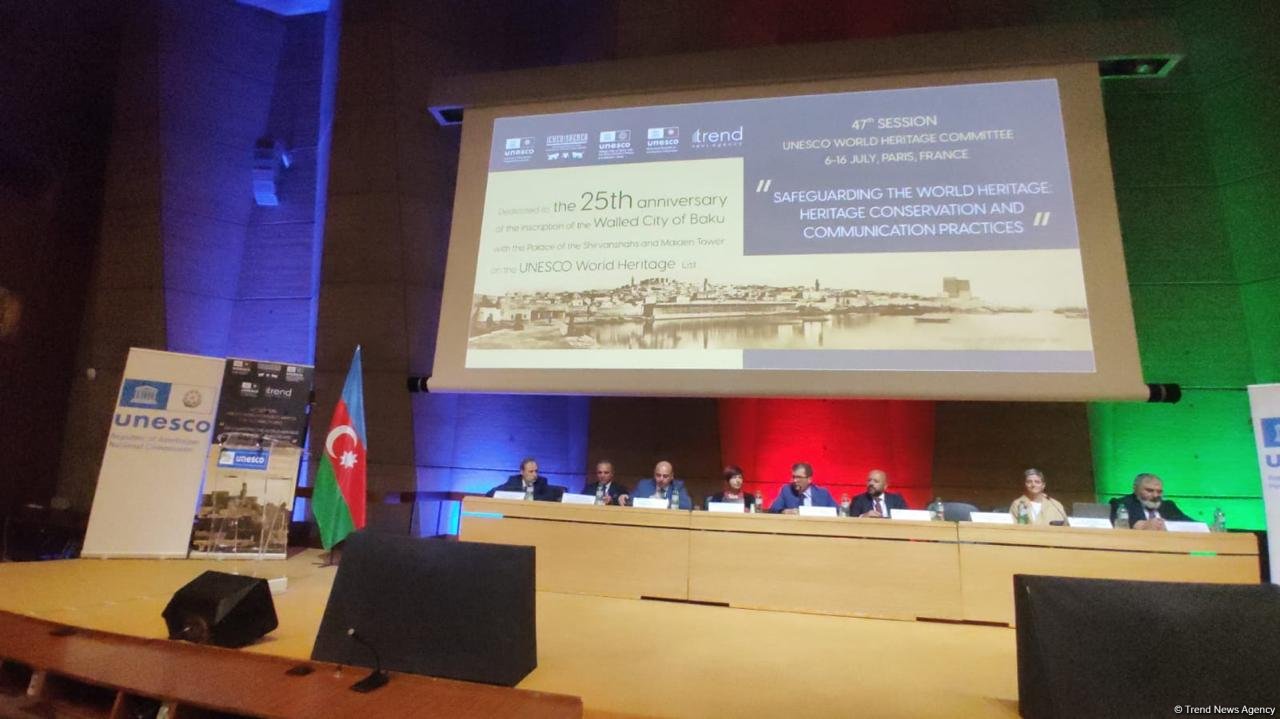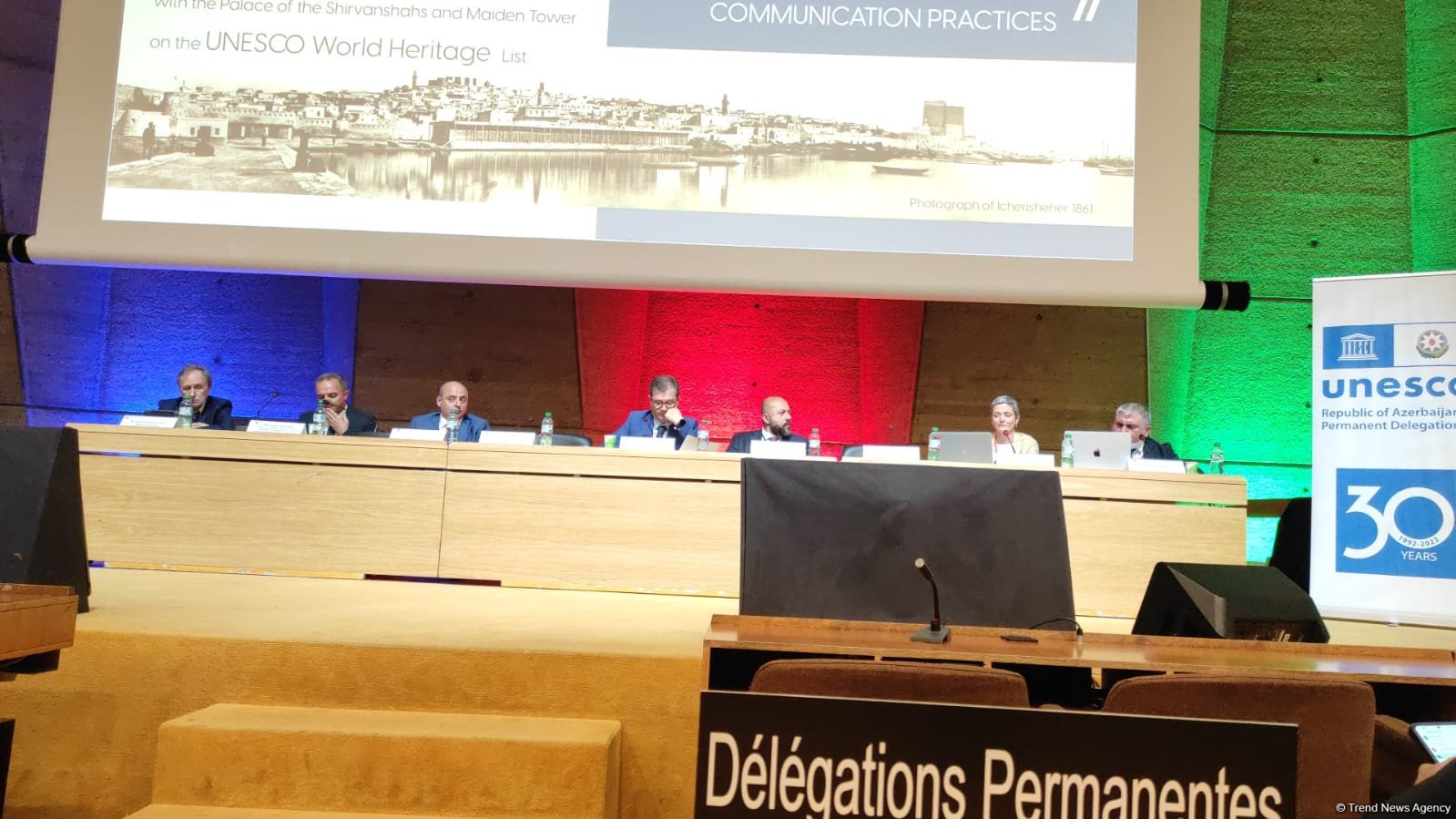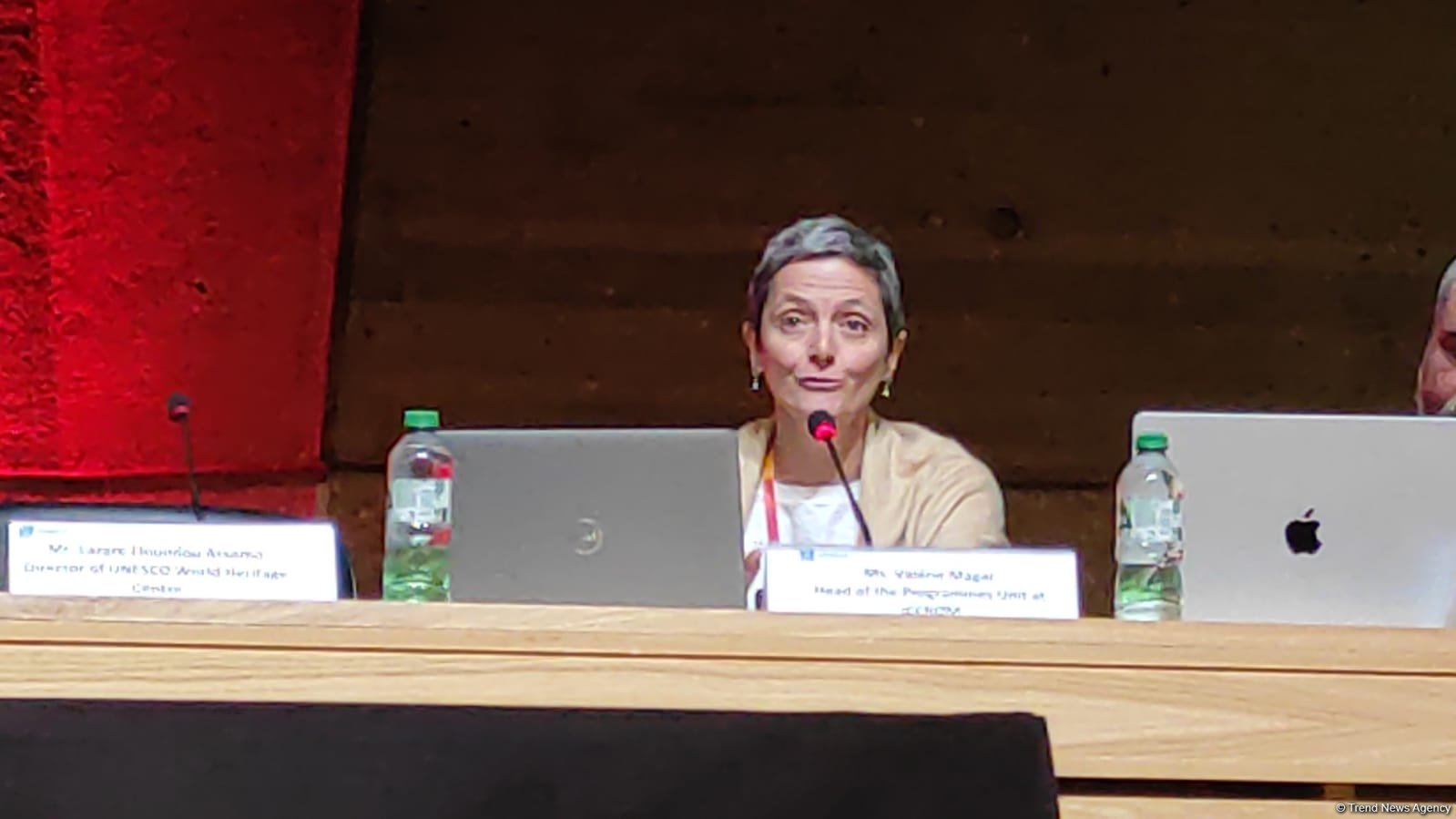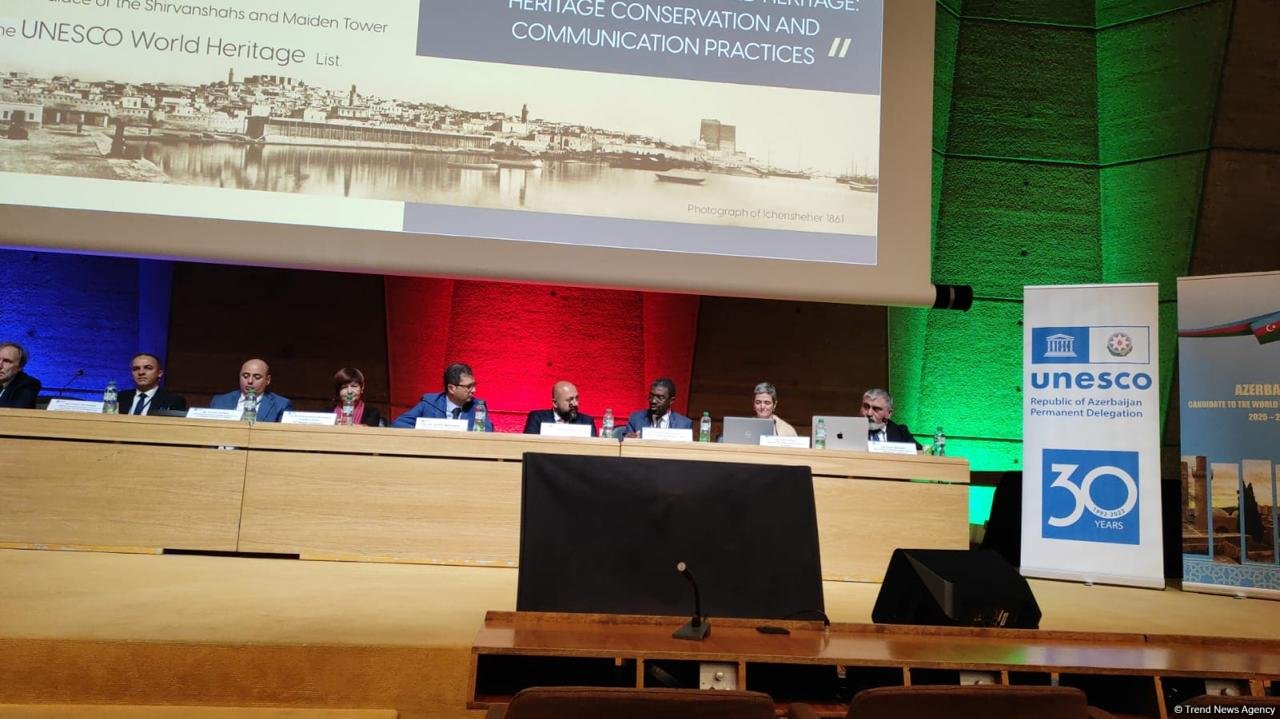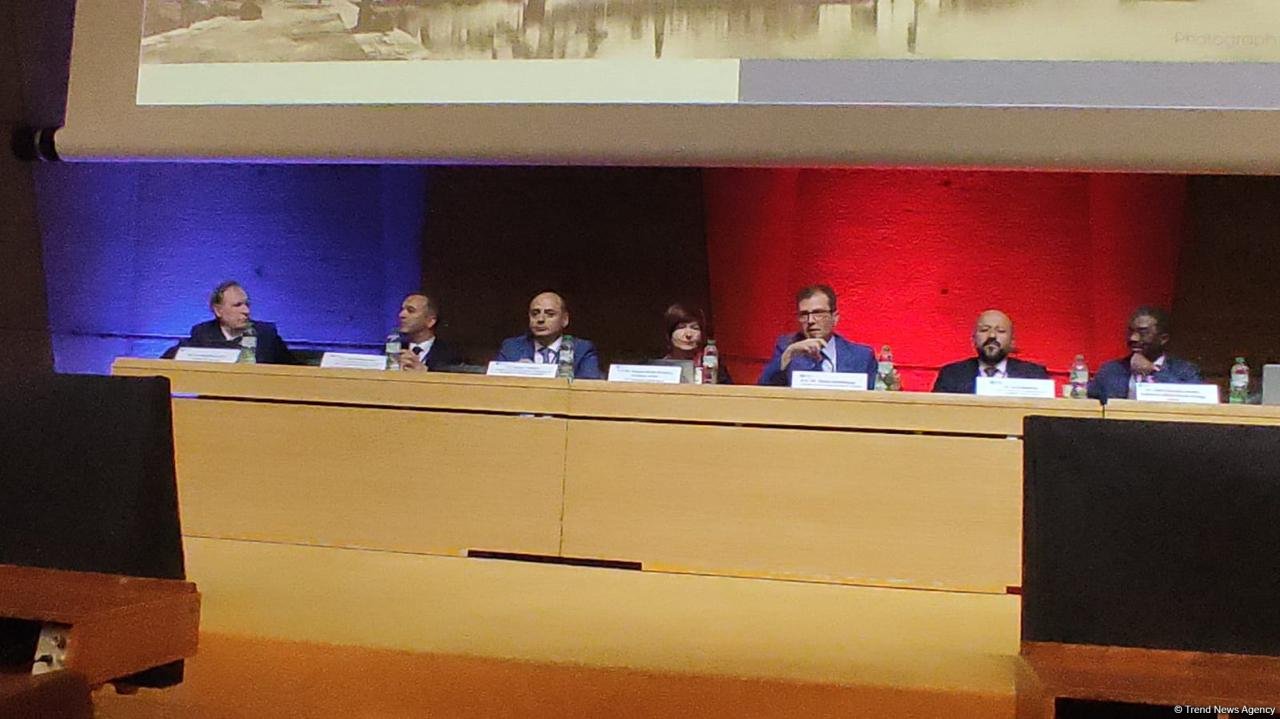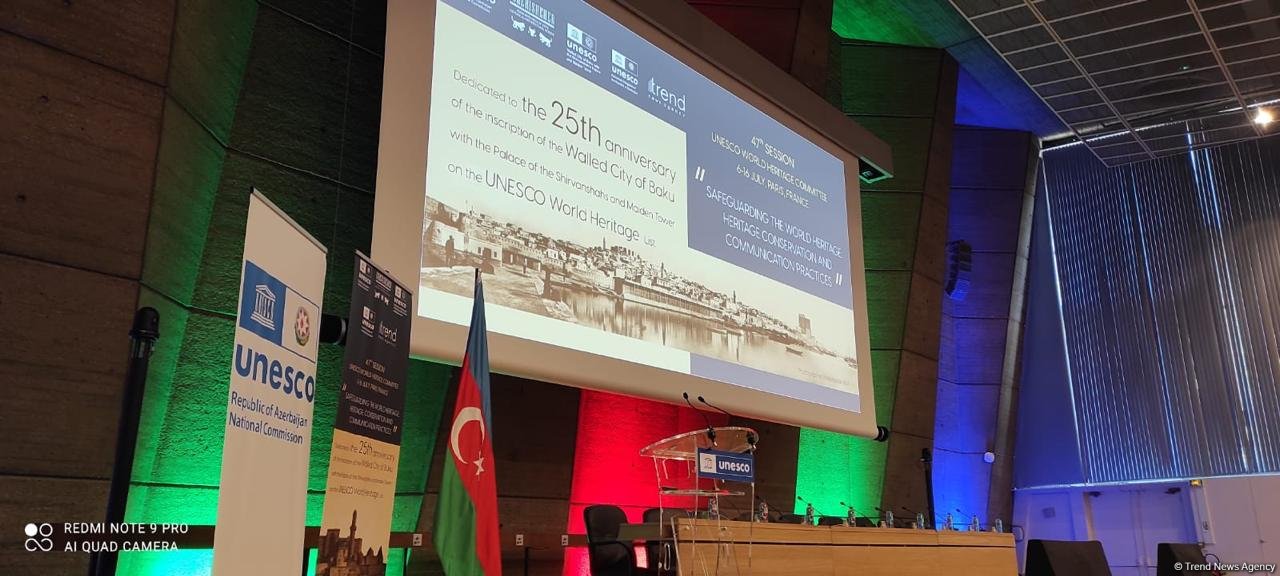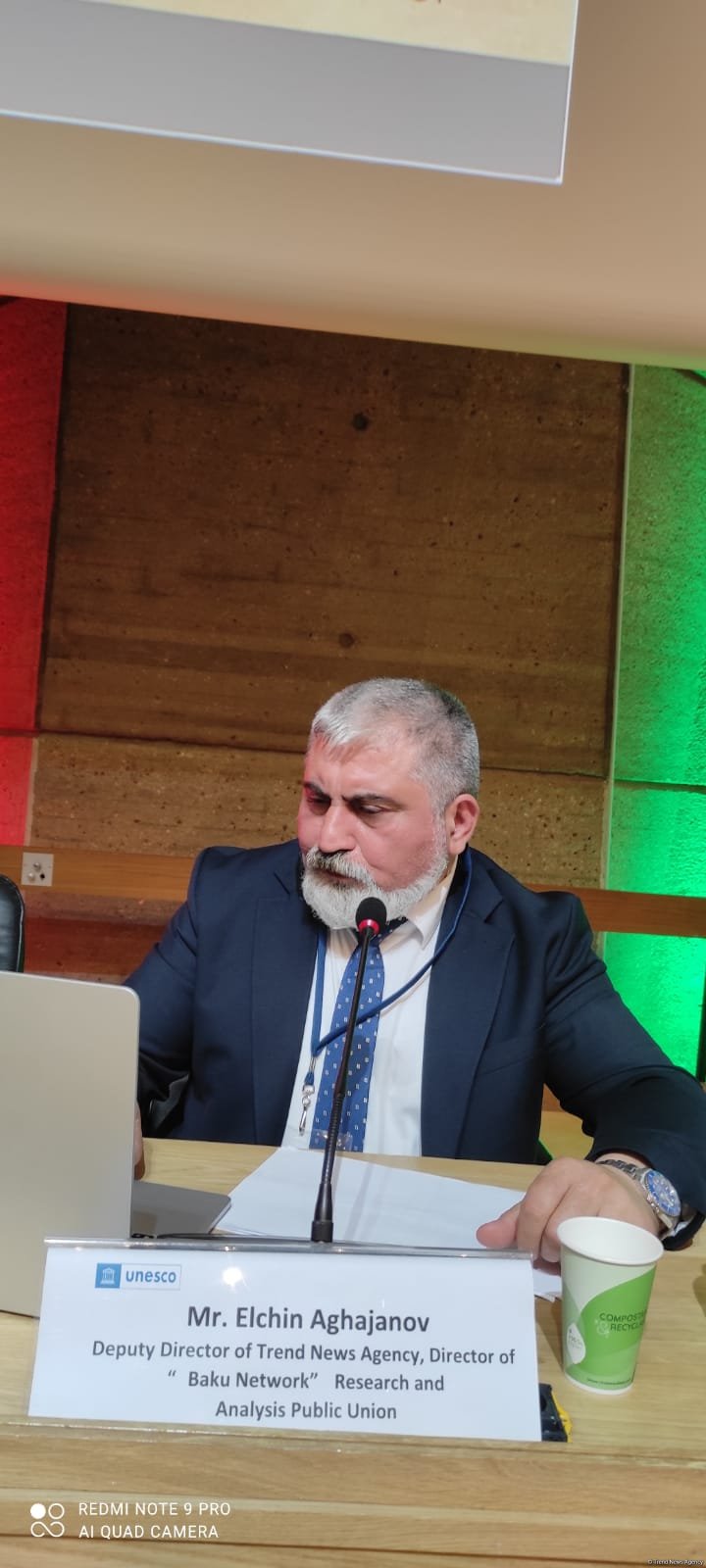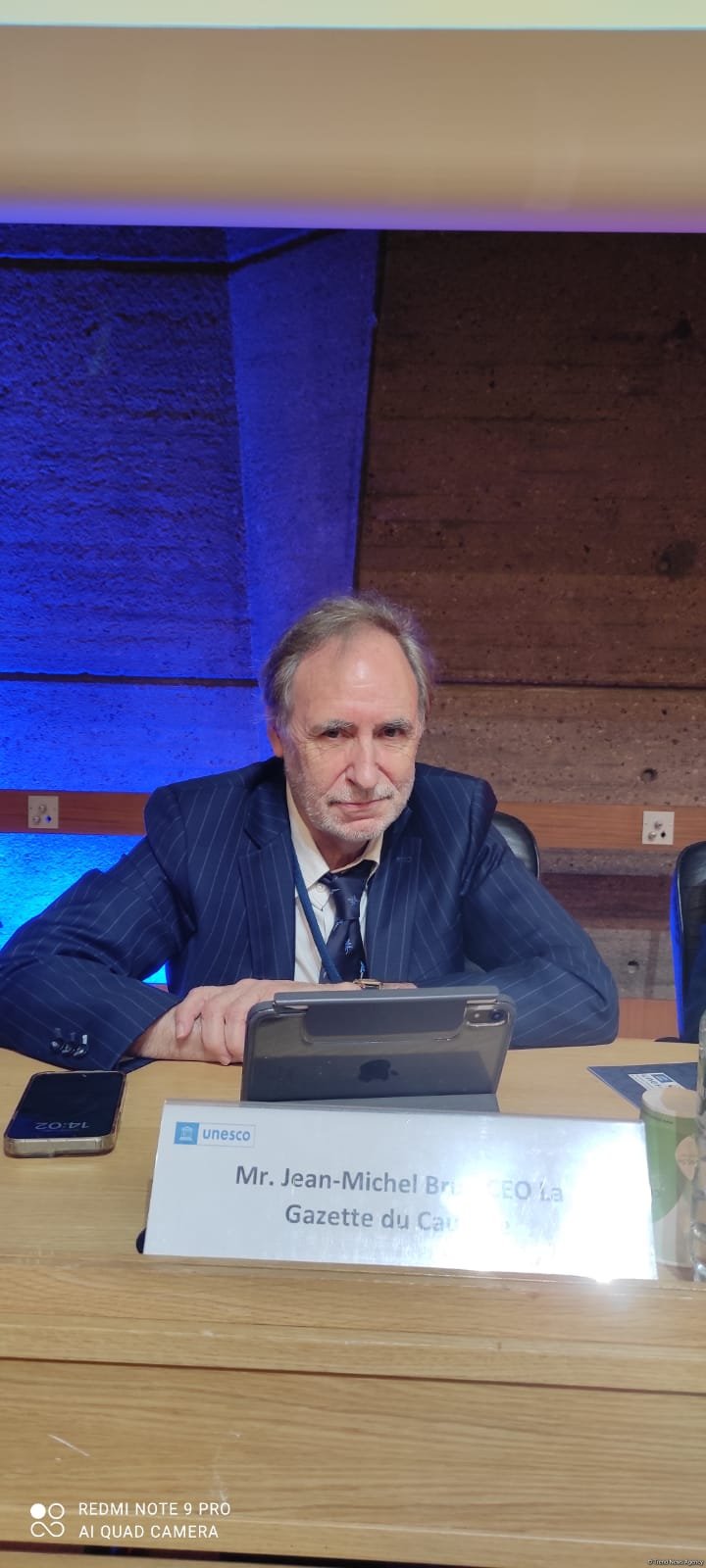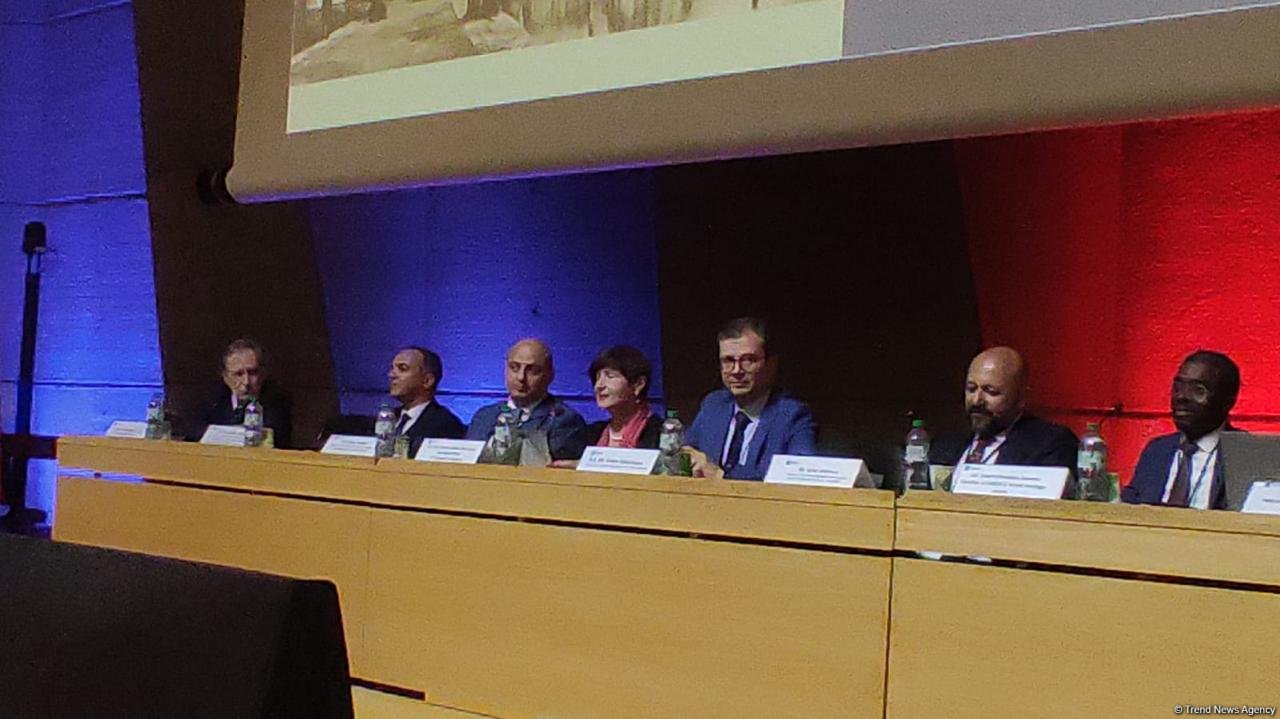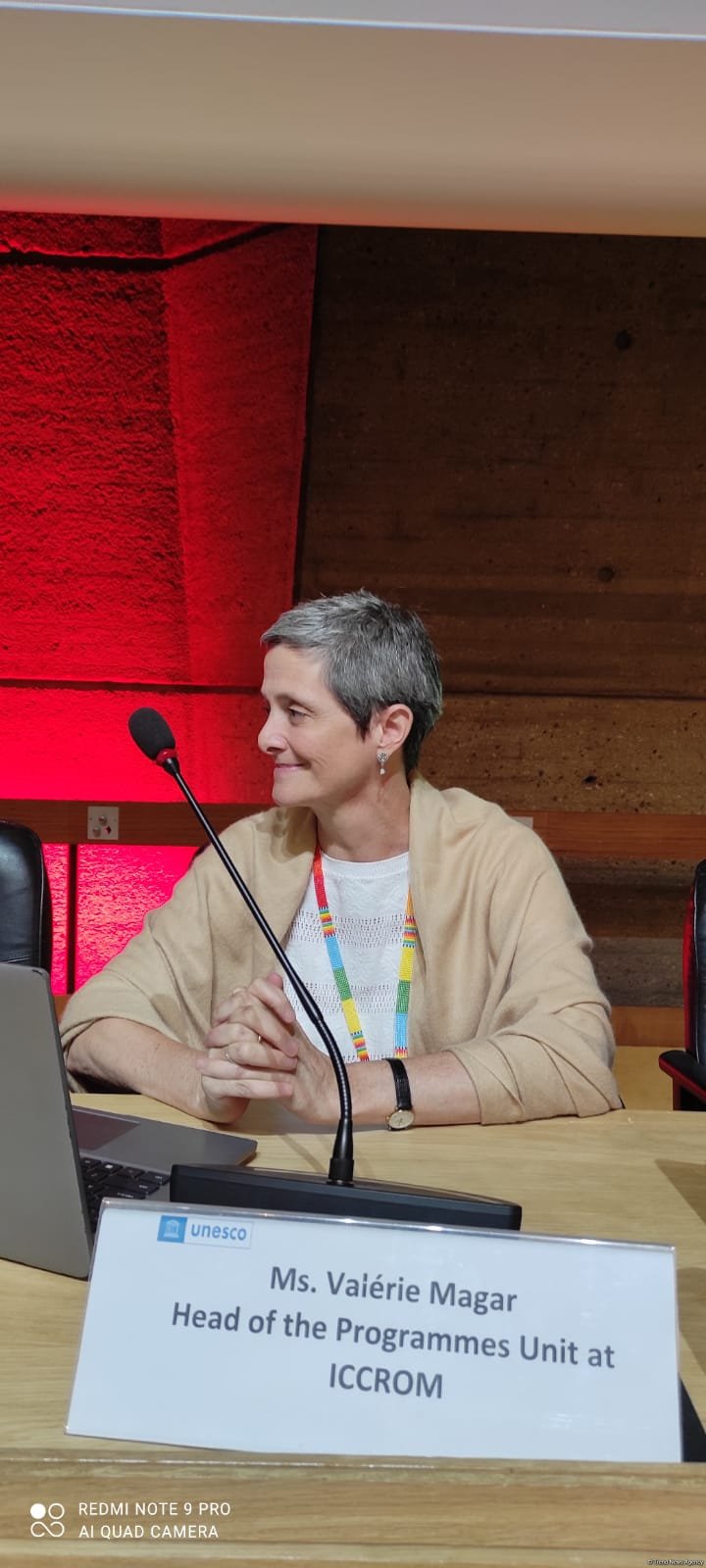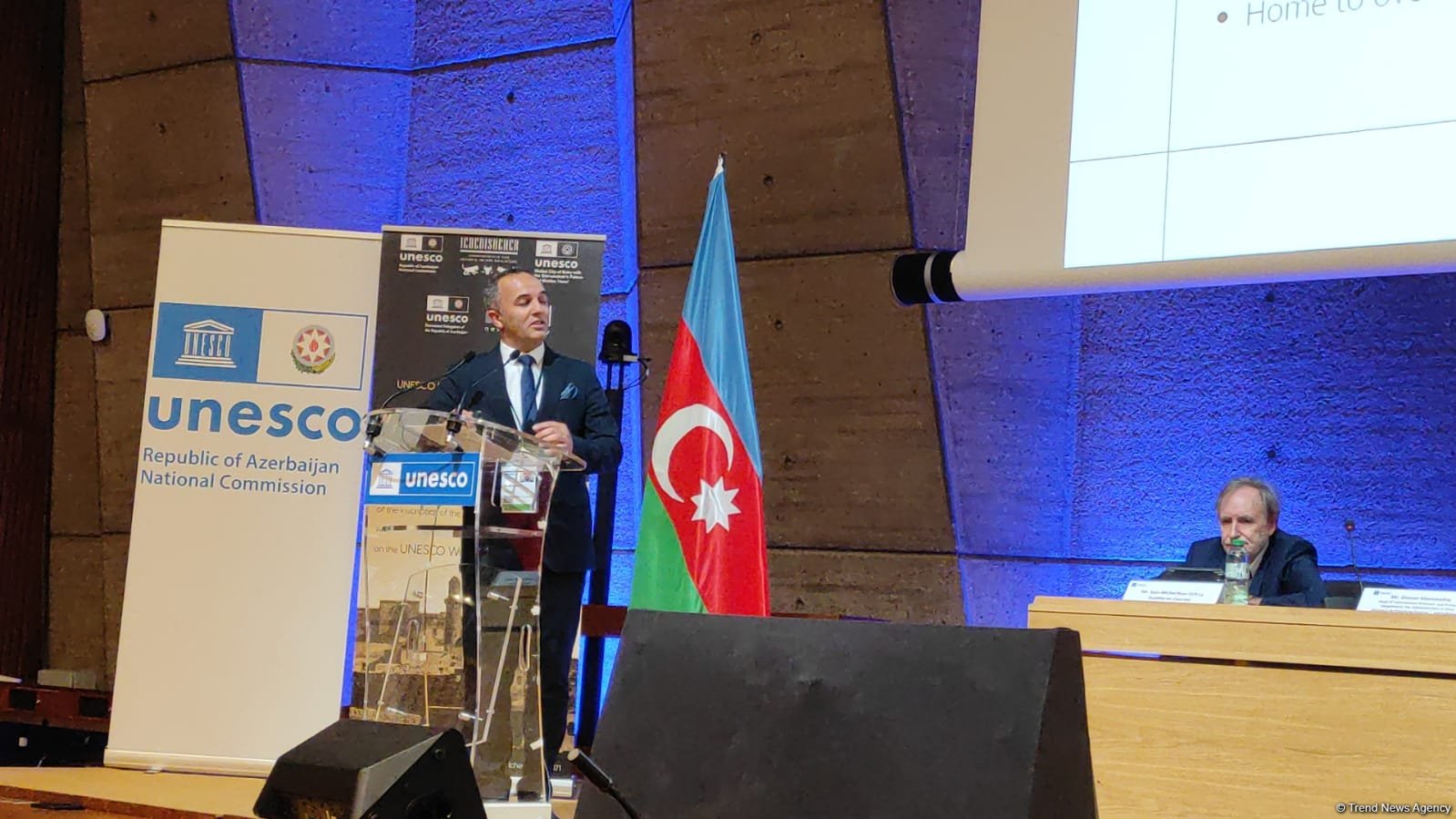PARIS, France, July 14. Cultural heritage is a shared value of humanity, and Azerbaijan remains firmly committed to UNESCO’s mission, said Ambassador-at-Large and Secretary General of Azerbaijan’s National Commission for UNESCO Seymur Fataliyev during an event marking the 25th anniversary of Icherisheher’s inclusion on the UNESCO World Heritage List. The event took place within the framework of UNESCO’s 47th session, Trend reports.
Fataliyev noted that this year marks 25 years since Azerbaijan’s first site — the “Icherisheher, Shirvanshah’s Palace, and Maiden Tower” complex — was added to the World Heritage List.
“This anniversary is not only a reflection of Azerbaijan’s contribution to global cultural heritage, but also a testament to the rich experience our country has gained in heritage preservation over the past 25 years,” he said.
He added that holding this event at UNESCO Headquarters carries symbolic meaning, once again highlighting that safeguarding cultural heritage is a responsibility shared by all nations.
“As many know, shortly after it was inscribed on the World Heritage List, Icherisheher was added to the List of World Heritage in Danger in 2003 due to the effects of an earthquake, urban development pressures, and limited conservation resources. However, thanks to the creation of the Icherisheher State Historical-Architectural Reserve Administration, the introduction of an integrated management system, and the phased implementation of scientifically backed restoration plans, Icherisheher was removed from the endangered list in 2009. This remains one of UNESCO’s rare success stories,” Fataliyev noted.
He emphasized that while state institutions play a key role in heritage protection, public awareness and engagement are equally essential.
“In this context, I’d especially like to acknowledge the work of Trend News Agency, which for years has actively contributed to the promotion and protection of cultural heritage, raising public awareness, and fostering international discussions through its educational content. Such communication initiatives play a vital role in building public appreciation for heritage and mobilizing society to protect it,” he said.
Fataliyev went on to highlight that five Azerbaijani heritage sites are currently inscribed on the UNESCO World Heritage List.
“Four of them are cultural heritage sites — ‘Icherisheher, Shirvanshah’s Palace, and Maiden Tower,’ the ‘Gobustan Rock Art Cultural Landscape,’ the ‘Cultural Landscape of Khinalig and the Nomadic Route,’ and the ‘Historic Centre of Sheki with the Khan’s Palace.’ Additionally, ‘Hirkan Forests’ is Azerbaijan’s first natural site included on the World Heritage List. In the coming years, we plan to prepare and submit new nominations for both cultural and natural heritage sites. Work is already underway to collect scientific documentation, expert opinions, and engage local communities to support these nominations at the international level,” he explained.
The Secretary General stressed that Azerbaijan remains an active party to the 1972 UNESCO World Heritage Convention.
“Our country has played an important role in implementing this convention, both as a former member of the World Heritage Committee and as a reliable UNESCO partner. In 2019, Baku successfully hosted the 43rd session of the World Heritage Committee, which made a valuable contribution to global cooperation in the heritage field. Continuing this commitment, in 2022–2023, Azerbaijan organized large-scale training programs on heritage protection for representatives of UNESCO National Commissions from African countries.
This initiative covered nearly 50 African nations and reaffirmed that cultural heritage transcends geography. It belongs to all humanity and must be safeguarded on equal terms. Azerbaijan’s experience-sharing fully aligns with UNESCO’s priority focus on Africa,” he added.
Fataliyev emphasized the need for greater global support to ensure more cultural and natural sites from Africa are represented on UNESCO’s lists.
“We believe the international community and the World Heritage Committee should enhance support for the broader recognition of African heritage sites. Azerbaijan hopes to further contribute to this important work and, as a sign of our continued commitment, has put forward its candidacy for the World Heritage Committee for the 2025–2029 term,” he stated.
He also reminded that Azerbaijan is a country where multiculturalism has been declared state policy.
“In our country, cultural heritage belonging to all communities — regardless of their religion, language, or ethnicity — is respected and protected equally by the state. Monuments are part of humanity’s shared history and can only be preserved in a tolerant environment. In this regard, Azerbaijan sets an example. The tradition of tolerance has been an integral part of Azerbaijani society for centuries,” Fataliyev said.
He then addressed the large-scale restoration and rebuilding efforts underway in territories liberated by Azerbaijan in 2020.
“According to current data, around 100 cultural heritage sites in these areas were mined during Armenian occupation and remain under serious threat today. Over nearly 30 years, hundreds of monuments were systematically destroyed, mosques were desecrated, and most remaining heritage sites were surrounded by landmines. Azerbaijan may now have the highest number of heritage sites in the world under such a threat. This endangers not only tangible heritage but also human lives,” Fataliyev stressed.
He concluded by reaffirming Azerbaijan’s commitment to the international conventions it has joined.
“We firmly believe that through our collective efforts, the cultural and natural heritage of humanity will be preserved and passed down to future generations. Cultural and natural heritage is a shared treasure of humanity, and protecting it is not only a duty to the past but also a moral responsibility to the future,” he said.

